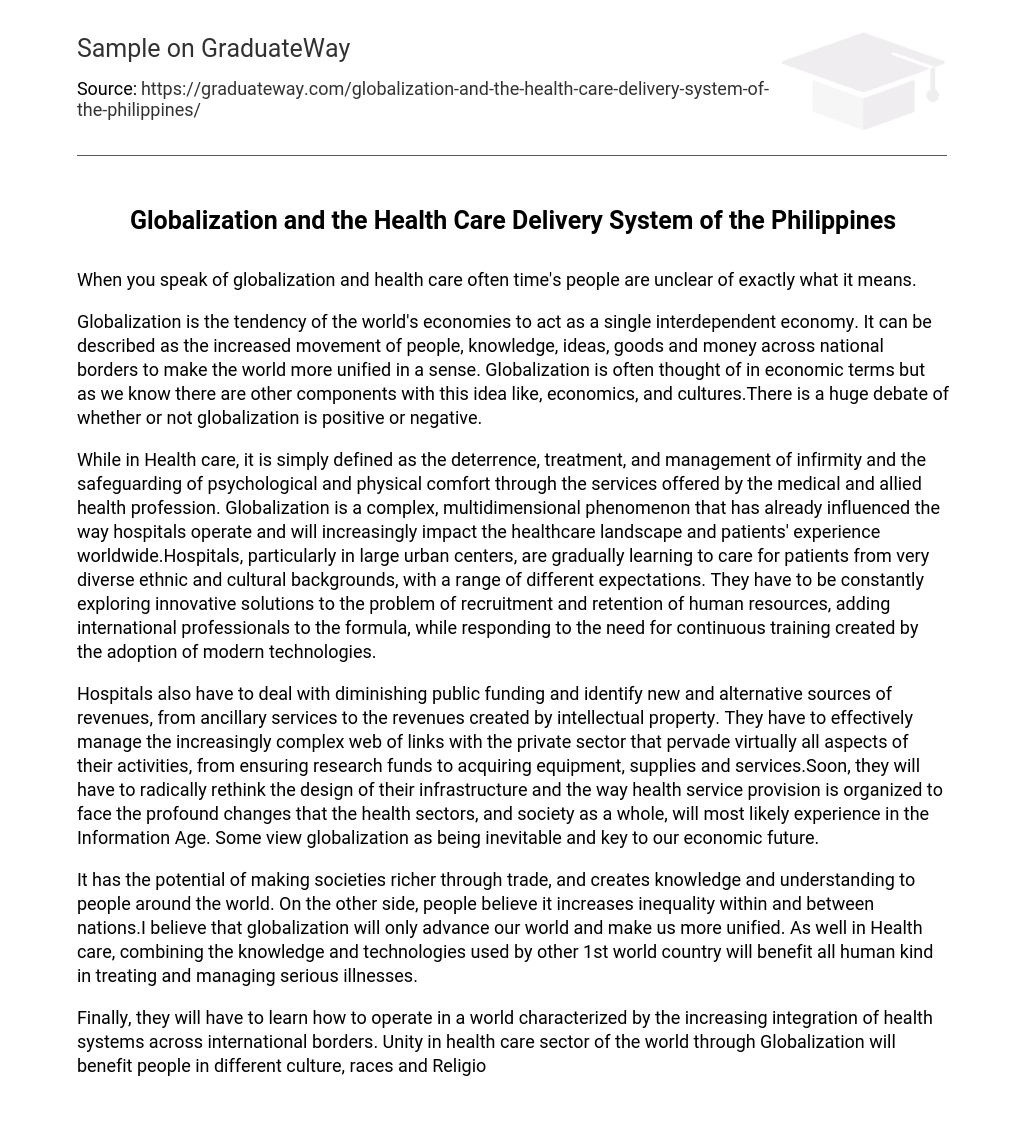Many people are unsure of the exact meaning of globalization and healthcare when it is discussed.
Globalization is the interconnectedness of the world’s economies, where people, knowledge, ideas, goods, and money move across national boundaries to create unity. It includes economic aspects but also extends to culture. The effects of globalization are widely debated.
Healthcare includes the prevention, treatment, and management of illness as well as the preservation of mental and physical well-being through medical and allied health professionals. Globalization has already influenced hospitals’ operations and will continue to impact healthcare worldwide. In urban areas, hospitals are adjusting to meet the needs of patients from different ethnic and cultural backgrounds with their own expectations. To address recruitment and retention challenges, hospitals must seek innovative solutions such as including international professionals while keeping up with training demands due to modern technologies.
Due to a decrease in public funding, hospitals are encountering challenges and are looking for alternative sources of revenue, including ancillary services and earnings from intellectual property. The management of interactions with the private sector is crucial for hospitals as it affects multiple aspects of their operations such as research funding, equipment procurement, supplies, and services. In order to adapt to the significant changes expected in the Information Age within both the healthcare sector and society as a whole, hospitals will need to reassess their infrastructure design and healthcare delivery organization. Globalization is seen by some individuals as an inevitable and vital factor for our economic prospects.
Globalization has the potential to enhance societies through trade, promoting knowledge and understanding globally. However, some argue that it exacerbates inequality both within and among nations. Nonetheless, I am of the opinion that globalization will progress our world and foster unity. Moreover, in the field of healthcare, integrating the knowledge and technologies employed by other developed countries will immensely benefit humanity in the treatment and management of severe illnesses.
Finally, individuals must acquire proficiency in navigating a world where health systems are becoming more intertwined across national boundaries. The global integration of healthcare will bring advantages to individuals from diverse cultures, races, and religions.





